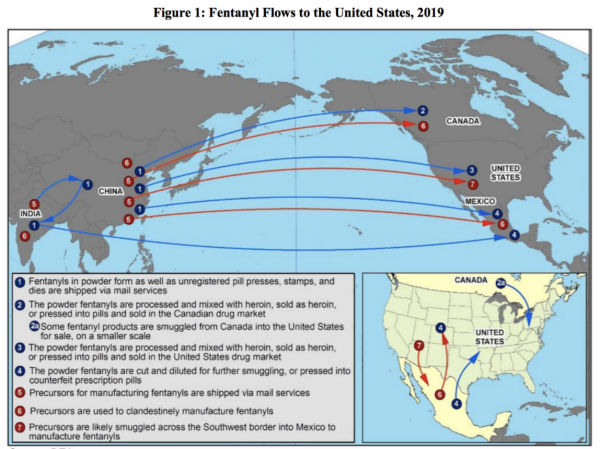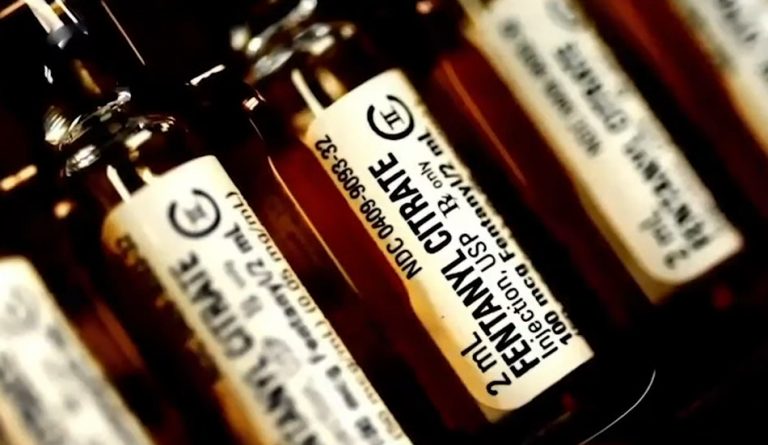On Dec. 15, President Joe Biden announced two executive orders intended to curb the skyrocketing death rates in the U.S. caused by synthetic drug overdoses, primarily related to fentanyl.
In a release, the U.S. Treasury Department stated that the Office of Foreign Assets Control (OFAC) has pinpointed 25 actors — 10 individuals and 15 entities — in four countries “for having engaged in, or attempted to engage in, activities or transactions that have materially contributed to, or pose a significant risk of materially contributing to, the international proliferation of illicit drugs or their means of production.”
“The illicit drug trade threatens our national security, economy, communities, and families,” Under Secretary of the Treasury for Terrorism and Financial Intelligence Brian Nelson said.
The two executive orders Biden announced; “Establishing the U.S. Council on Transnational Organized Crime” and “Imposing Sanctions on Foreign Persons Involved in the Global Illicit Drug Trade,” are meant to bolster the government’s efforts to prevent foreign — predominantly Chinese — companies and individuals from producing, trafficking, and selling fentanyl.
The four Chinese outlets mentioned were Wuhan Yuancheng Gongchuang Technology Co., Shanghai Fast-Fine Chemicals Co, Hebei Huanhao Biotechnology Co., and Hebei Atun Trading Co.
Success
You are now signed up for our newsletter
Success
Check your email to complete sign up
Wuhan Yuancheng Gongchuang Technology Co. CEO Chuen Fat Yip was also individually designated as a trafficker of “fentanyl, anabolic steroids, and other synthetic drugs to the United States,” and is suspected of controlling, “a group of companies that sell compounds and fentanyl precursor chemicals to the public and to private businesses.”
The department also identified 10 individuals and 15 entities in Mexico, Brazil, Colombia, and China as major producers that will also be sanctioned.

In recent years, fentanyl has surpassed heroin to become the number one cause of death in the United States. Also, a shift has been observed toward a higher amount of synthetically brewed illicit drugs at the cost of agriculturally grown varieties. Most fentanyl is produced in China.
Up until now, “the vast majority of counter-narcotics sanctions designations have been implemented under the Foreign Narcotics Kingpin Designation Act,” a senior administration official told reporters.
The act, also known as the 1999 Kingpin Act, based on the 1961 Foreign Assistance Act, was outdated. The bill listed only the usual suspects that are known to produce plant-based drugs, like heroin, cannabis, and cocaine; countries like Afghanistan, Columbia, Mexico, and Venezuela, but not China.
This list was updated under the Trump administration in the 2020 “Majors List” that named 22 significant drug-producing and drug trafficking countries but somehow omitted China.
Also, a Council on Transnational Organized Crime is to be created under the executive orders for “developing whole-of-government plans to address the top transnational organized crime threats,” the White House statement read.
“The Strategic Division will draw on law enforcement and intelligence community information to develop comprehensive strategic plans to drive operations, initiatives, and actions across the government,” it added.
READ MORE: Drug Overdoses in the US Soar Past 100,000 Amidst COVID-19 Crisis















